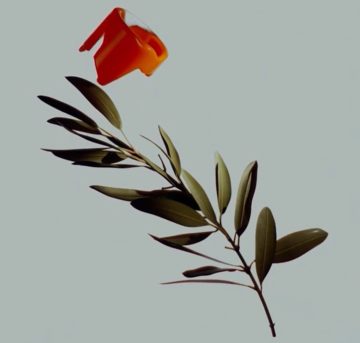Morgan Meis in The New Yorker:
 I often watch the television show “Hoarders.” One of my favorite episodes features the pack rats Patty and Debra. Patty is a typical trash-and-filth hoarder: her bathroom contains horrors I’d rather not describe, and her story follows the show’s typical arc of reform and redemption. But Debra, who hoards clothes, home decorations, and tchotchkes, is more unusual. She doesn’t believe that she has a problem; in fact, she’s completely unimpressed by the producers’ efforts to fix her house. “It’s just not my color, white,” she says, walking through her newly de-hoarded rooms. “Everything that I really loved in my house is gone.” She is unrepentant, concluding, “This is horrible—I hate it!” Debra just loves to hoard, and people who want her to stop don’t get it.
I often watch the television show “Hoarders.” One of my favorite episodes features the pack rats Patty and Debra. Patty is a typical trash-and-filth hoarder: her bathroom contains horrors I’d rather not describe, and her story follows the show’s typical arc of reform and redemption. But Debra, who hoards clothes, home decorations, and tchotchkes, is more unusual. She doesn’t believe that she has a problem; in fact, she’s completely unimpressed by the producers’ efforts to fix her house. “It’s just not my color, white,” she says, walking through her newly de-hoarded rooms. “Everything that I really loved in my house is gone.” She is unrepentant, concluding, “This is horrible—I hate it!” Debra just loves to hoard, and people who want her to stop don’t get it.
I was never sure why Debra’s stubbornness fascinated me until I came across the work of Jane Bennett, a philosopher and political theorist at Johns Hopkins. A few years ago, while delivering a lecture, Bennett played clips from “Hoarders,” commenting on them in detail. She is sympathetic to people like Debra, partly because, like the hoarders themselves, she is focussed on the hoard. She has philosophical questions about it. Why are these objects so alluring? What are they “trying” to do? We tend to think of the show’s hoards as inert, attributing blame, influence, and the possibility of redemption to the human beings who create them. But what if the hoard, as Bennett asked in her lecture, has more agency than that? What if these piles of junk exert some power of their own?
More here.
